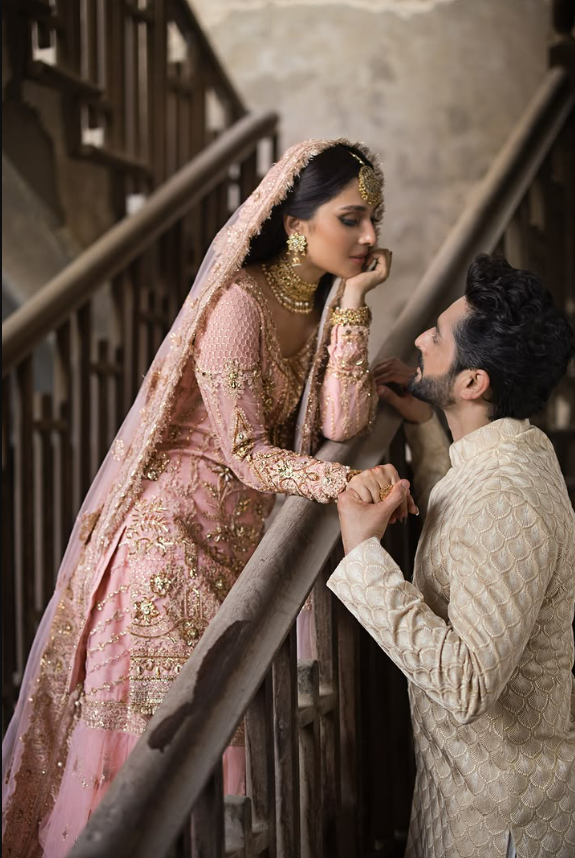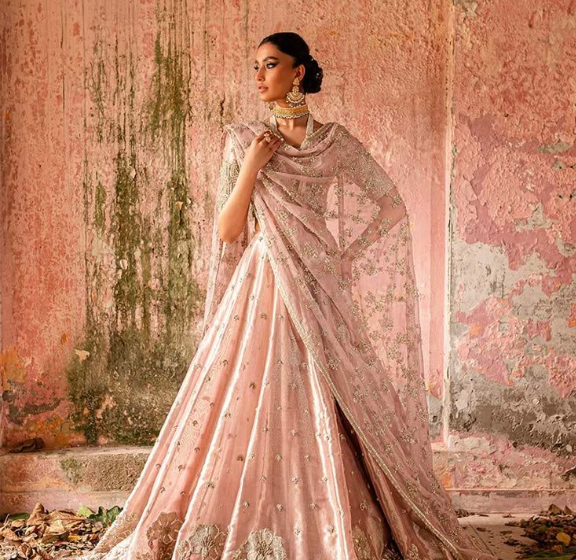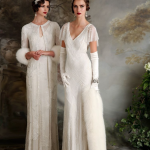Pakistani weddings are a stunning tapestry of tradition, familial bonds, and vibrant celebrations. Celebrated for their lavish ceremonies, intricate customs, and deep cultural significance, these weddings present a unique and unforgettable experience. Whether you’re planning a wedding in the UK that reflects Pakistani heritage or simply captivated by these colorful traditions, understanding the customs that define Pakistani weddings is essential.
The Core of Pakistani Weddings
A Celebration Beyond Two Individuals
At the core of every Pakistani wedding lies the profound emphasis on familial and communal connections. These events transcend the mere union of two individuals; they are expansive celebrations that unite families and entire communities. Each segment of the festivities, from the engagement to the grand feasts, underscores the joy of love, family unity, and the cultural importance of marriage.
Cultural Significance in Wedding Traditions
The rituals performed during Pakistani weddings are rich in symbolism, with each practice conveying specific cultural values. From the elaborate henna art adorning the bride’s hands to the solemn vows exchanged, every detail is steeped in cultural heritage, emphasizing the values of dedication, unity, and mutual respect essential to any marriage.
Key Traditions in Pakistani Weddings
The Engagement Ceremony (Mangni)
The wedding journey commences with the Mangni, an engagement ceremony of great significance. During this gathering, the bride and groom’s families exchange rings, symbolizing their commitment to one another. This occasion is often filled with blessings and prayers for the couple’s future happiness.
Mehndi Ceremony: A Festivity of Color and Joy
One of the most festive events preceding the wedding is the Mehndi ceremony, held the night before. This lively celebration features music, dance, and the artistic application of henna on the bride’s hands and feet. Encircled by friends and family, the bride enjoys traditional dances, creating joyous memories and strengthening familial ties before the wedding day.
Nikkah: The Formal Marriage Ceremony
The Nikkah marks the official Islamic marriage contract and serves as the foundation of a Pakistani wedding. During this ceremony, vows are exchanged in the presence of family and religious witnesses, solidifying the couple’s legal and spiritual bond. Accompanied by prayers for their joy and future success, the Nikkah is a solemn yet celebratory moment.
Walima: The Grand Post-Wedding Celebration
After the Nikkah, the couple hosts an extravagant reception called Walima, usually organized by the groom’s family. This celebration features a rich banquet and heartfelt speeches from relatives. It serves as a platform for the couple to express gratitude to their families and friends, marking the official recognition of their marriage.
Traditional Attire During Pakistani Weddings
Bridal Elegance: A Showcase of Tradition
In a Pakistani wedding, the bride typically adorns herself in a lavish outfit known as a lehenga or Sharara, crafted from luxurious textiles such as silk, velvet, or chiffon. These exquisite outfits often feature intricate embroidery, shimmering sequins, and vibrant colors like red, gold, or green. The bride enhances her attire with elaborate jewelry, including a necklace, earrings, and the traditional maang tikka, complemented by beautiful henna artistry.
Groom’s Traditional Garb
In traditional ceremonies, the groom often wears a Sherwani, an intricately embellished long coat that exudes sophistication. This elegant attire is typically matched with churidars, which are tailored pants that fit snugly, along with a turban or saafa that adds to the overall regal appearance. The groom’s ensemble is thoughtfully crafted to harmonize perfectly with the bride’s outfit, ensuring a stunning coordination on their special day.
Culinary Wonders at Pakistani Weddings
A Feast of Traditional Delicacies
A Pakistani wedding is not truly celebratory without an extravagant spread of delectable dishes. Signature offerings like biryani, various kebabs, and soft naan steal the spotlight, showcasing the vibrant and rich flavors that characterize the country’s culinary heritage. To conclude the festivities on a sugary high, attendees indulge in a selection of traditional sweets, including gulab jamun, crispy jalebi, and an array of mithai, which bring an extra layer of joy to the occasion.
Role of Sweets and Hospitality
Sweets hold substantial importance in Pakistani weddings, symbolizing happiness and prosperity for the newlyweds. Offering sweets to guests reflects hospitality and respect, and couples often share sweets as part of their marital vows, further emphasizing unity.
Organizing a Pakistani Wedding in the UK
Choosing the Ideal Venue
When planning a Pakistani wedding in the UK, selecting the right venue is crucial. Couples typically seek locations capable of hosting large gatherings, as Pakistani weddings tend to have extensive guest lists. It’s vital to find a venue that honors this cultural richness while providing the necessary amenities for a truly memorable celebration.
Adapting Pakistani Wedding Traditions for Modern British Weddings
Adapting Pakistani wedding traditions for modern British weddings is a wonderful way to preserve cultural heritage while integrating contemporary trends that make the wedding unique and accessible to a wider audience.

Venue Selection and Logistics
The first step when planning a Pakistani wedding in the UK is choosing the right venue. Traditionally, Pakistani weddings take place in large halls to accommodate a sizable guest list. However, for the UK setting, it’s essential to look for venues that can adapt to the needs and aesthetics of a Pakistani wedding. These could include spacious hotels with banquet halls, country estates, or even outdoor locations for ceremonies, which work perfectly for smaller, non-traditional events.
One key logistical consideration is organizing the space. Pakistani weddings traditionally consist of several stages, such as Mehndi, Nikkah, and Walima, each requiring separate spaces. For example, the Nikkah ceremony might be held in a separate hall to maintain a formal atmosphere, and guests can then transition to a livelier area for Mehndi or Walima, where music, dance, and festivities take place.
Integrating Contemporary Trends
To take a modern approach, you can adapt traditional wedding elements with the latest technologies. Incorporating photography and videography into wedding traditions is essential, as they help preserve memories of every moment. Using drones for capturing breathtaking aerial shots or footage of the venue is a trend that can also be seamlessly added to a Pakistani wedding.
Furthermore, light shows have become quite popular in recent years. Not only do they create a stunning atmosphere at the wedding, but they also bring a contemporary twist to traditional celebrations. Using light installations and LED screens that display images from the couple’s life or symbolic visuals for each ceremony, such as Mehndi or Nikkah, creates a unique ambiance for guests.
Preserving Cultural Traditions
It’s important to note that while integrating modern elements, cultural practices should remain intact. For example, the Mehndi ceremony, where henna is applied to the bride’s hands, is a beautiful tradition that should still be cherished. Even with modern music being played, traditional dances like dholki should remain, preserving the joyful, family-bonding atmosphere characteristic of Pakistani weddings.
The Nikkah ceremony is the cornerstone of a Pakistani wedding, and it’s important to uphold the traditional vows exchange, either in a religious or family setting. Even with modern elements like microphones and cameras for better guest experience, the sacredness of the Nikkah ceremony should be preserved, accompanied by prayers for the couple’s happiness and future.
Popular Pakistani Wedding Customs Among British Pakistani Families
Among British Pakistani families, we see how traditional Pakistani wedding customs are adapting to modern Western lifestyles. For example, Nikkah ceremonies are often held in religious centers or mosques, but the celebrations typically continue at venues offering a more contemporary atmosphere, like hotels or specialized wedding venues. This allows for the blend of traditional practices with modern culture, making weddings more accessible for people living outside their home countries but still wishing to maintain cultural customs.
Some customs, like the Walima (post-wedding reception), can be adapted by including Western elements, such as vegetarian or vegan dishes for guests with dietary preferences. However, traditional Pakistani dishes like biryani, kebabs, and puddings are still a must on the menu.
Conclusion
Adapting a Pakistani wedding for modern British conditions requires a careful combination of traditions and contemporary elements. This approach not only helps preserve cultural heritage but also introduces interesting, modern touches that make the wedding day even more memorable. The right venue, a mix of modern technology, adherence to traditional customs, and attention to detail can help create the perfect atmosphere for a wedding that reflects both unique culture and current trends.



